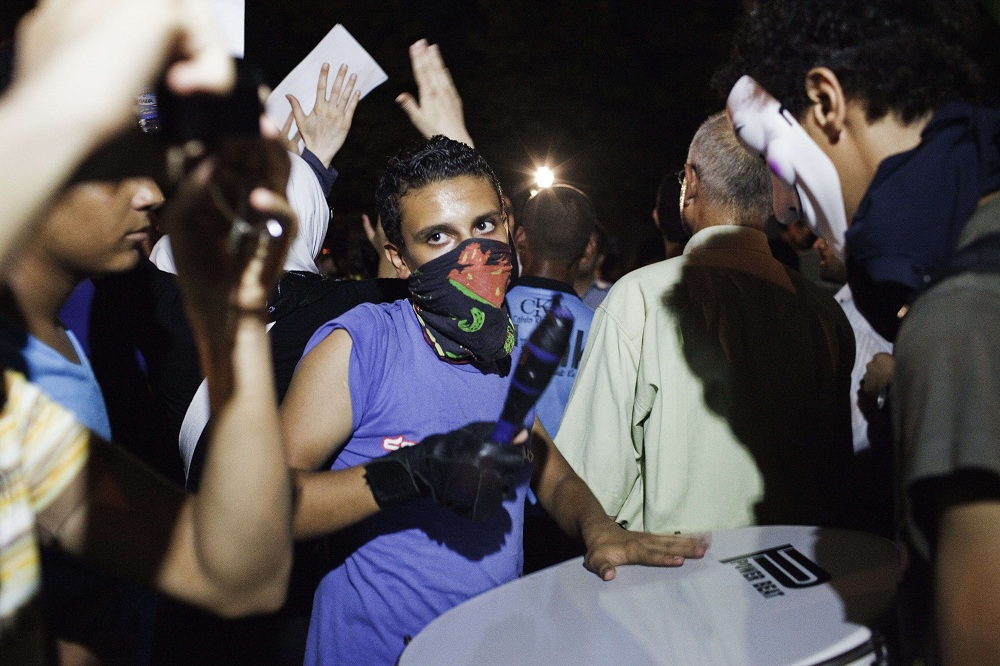BEIRUT: Technology has taken many otherwise confined Muslim societies by storm, and there is little anyone can do to stop it.
Saudi Arabia is one such place. Though it is known for its traditional and conservative approach towards the interaction between sexes, its norms are being challenged by the current wave of technology. A decade ago, the government had a fair amount of control over what its citizens saw and heard.
Now, young people are taking technology into their own hands for social networking. The impact of this change is not only affecting relationships among youth, but also the larger society.
Years ago, satellite channels could not be found on any Saudi television set. Channels such as America Plus, E! Entertainment and Show Series were all prohibited in order to maintain a sense of religiosity in the country.
However, with the rise of subscription-based networks such as Orbit, Showtime and ART (Arabian Radio and Television) in the late 1990s, it has grown increasingly difficult to monitor what the population is watching, which now includes television shows like Nip/Tuck, Saturday Night Live, The OC and Friends.
The government is well aware the inhabitants have access to this array of news and entertainment, with scores of subscribers growing daily. This may seem like a positive move for some, but others aren’t so keen on the opening up of society to what has been dubbed a “Western lifestyle.
Some sheikhs and muftis from the Middle East, particularly Saudi Arabia, fall into this category. They have appeared on regional Arab television, condemning pop culture shows such the Lebanese-produced Pan-Arab version of “Star Academy – a televised pop music talent contest, which showed both male and female contestants living in the same household.
Their argument was that this behavior went against the teachings of Islam, and promoting such lifestyles would corrupt society.
Control over media is not limited to television shows and cable channels; Saudi Arabia has also attempted to control its population’s internet access. Online networking sites such as Facebook, or those that carry controversial material, are banned even though the Saudi government has not provided the public with an official statement declaring this.
But limiting internet access was easier to do with dial-up connections. The development of wireless internet allowed Saudis the freedom to surf the web and access information without fearing that the government was peering over their shoulders.
So now there is a battle between a society seeking freedom of expression and a government seeking to maintain a conservative religious code of conduct throughout the nation. This reality is in direct contrast to that of the youth in the West, where there exist opportunities for both sexes to meet freely and develop mutual feelings. But in as conservative a society as Saudi Arabia, youth must find innovative ways to establish any contact with a potential partner.
Malls in Saudi Arabia provide a venue for this kind of interaction. Men and women routinely roam the malls in search of love. This is no secret, as a shopping mall is probably the only public venue where unmarried men and women are somewhat allowed to co-exist in the same space, as they stroll alongside one another. Years ago the traditional targeem (numbering) process was very popular, where single men and, occasionally, women would write down their telephone numbers on a piece of paper and toss it at a passerby.
And with the rising popularity of mobile phones Saudis found another solution to limited interaction between the sexes – Bluetooth. This technological device, which facilitates short-range distance communication, has made interacting in secret a breeze.
Of course, people had to withstand the risk of being caught, either by protective parents or the country’s religious police. But now, with the latest technology at their fingertips, Saudi youth can choose from a multitude of suitors. And many still opt for the traditional way of meeting “the one – by word of mouth. The traditions embedded in Saudi society are now practiced alongside new ways of meeting suitors.
But a transition is slowly underway. The similarities between the youth of East and West are immeasurable, as mobile phone technology, TV and the internet provide easy-to-access forums to information and social connections. Saudi youth certainly face more restrictions than their counterparts in other countries, but they are hoping for change.
This is not to say that Saudi youth are opting for a Westernized lifestyle. Rather, they are defining their own lives in the face of state and cultural pressures, and in doing so, they are subtly redefining their society.
Ceem Haidar is a journalism graduate from the Lebanese American University. She is currently working at a lifestyle publication in Beirut. This article was written for the Common Ground News Service (CGNews).

